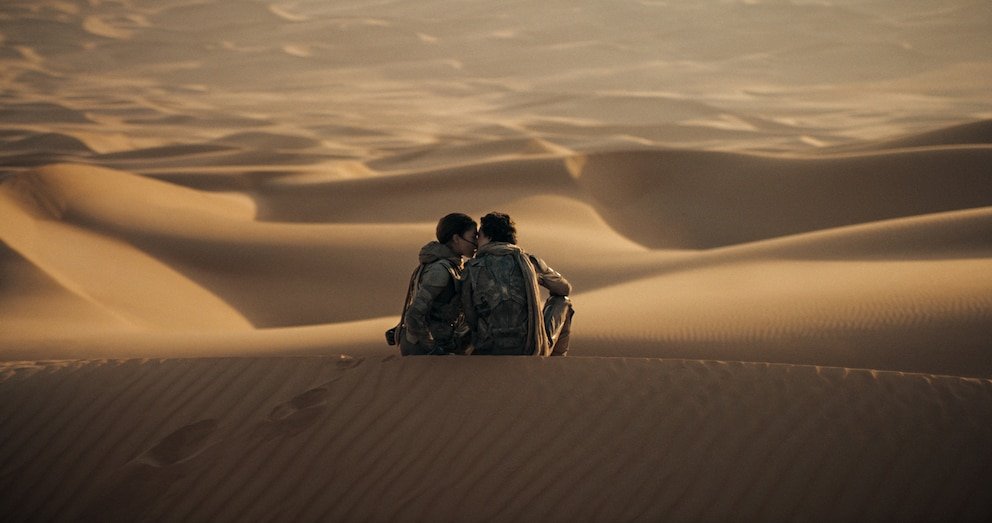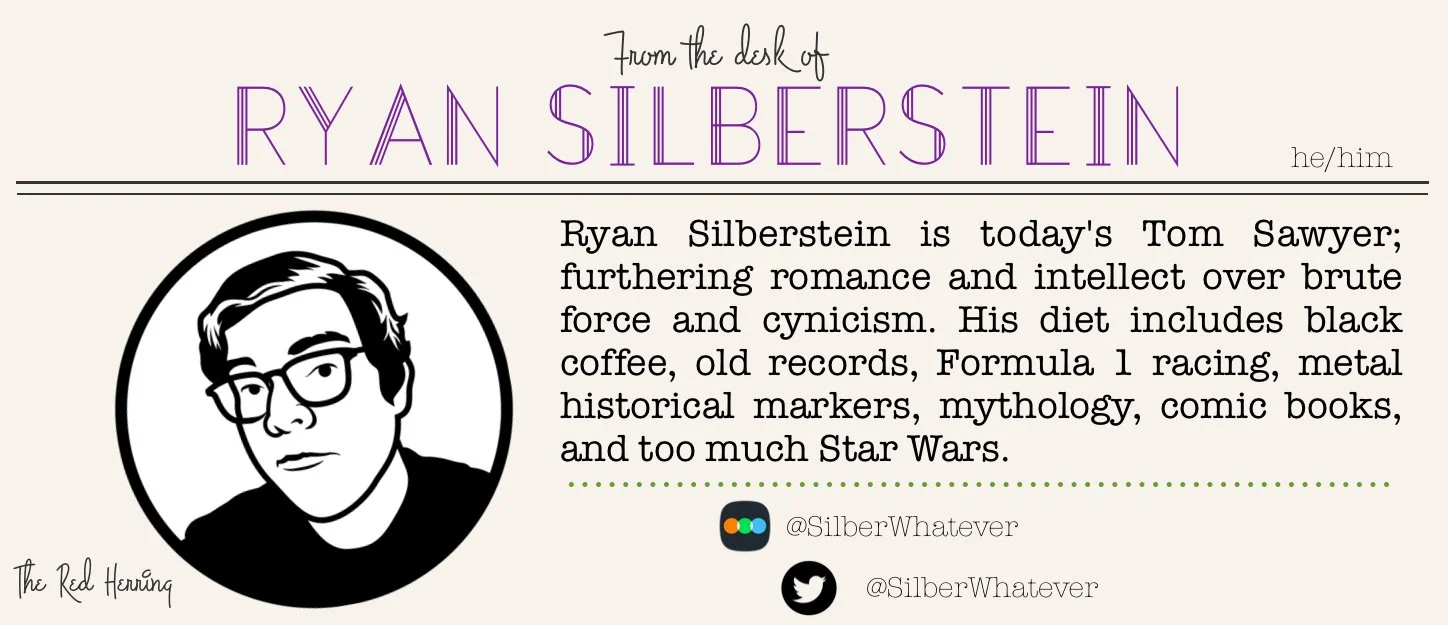DUNE: PART TWO is a beautiful book report
Dune: Part Two
Directed by Denis Villeneuve
Written by Denis Villeneuve and Jon Spaihts
Starring Timothée Chalamet, Zendaya, Rebecca Ferguson, Javier Bardem
Rated PG-13
Runtime: 2 hours, 47 minutes
In theaters March 1
by Ryan Silberstein, Managing Editor, Red Herring
I was fairly disappointed in the first installment of this Dune adaptation, feeling as though we had spent a long time in what were essentially the opening chapters of the story. I was hoping to see much of those weaknesses improved in Part Two, but seeing the second half was equal parts frustrating and affirming in my diagnosis of the first film. This installment covers a lot more time and a lot more ground, but also suffers from some of the same choppy and abrupt pacing that David Lynch’s 1984 adaptation does, despite being twice as long overall. There is certainly a lot to appreciate in Villeneuve’s Part Two, but the material in the second and third acts of Herbert’s story would have benefited from being as decompressed as the first act was. Not that this needed to be a trilogy either, but misplaced priorities kneecap some of Villenueve’s better instincts.
Part Two picks up shortly after the end of the 2021 film, offering no recap. Paul Atreides (Timothée Chalamet) and his mother Jessica (Rebecca Ferguson) are following Stilgar (Javier Bardem) and his band of desert-dwelling Fremen back to their home. Chani (Zendaya) watches Paul, suspicious of the outsiders, and wary of Silgar’s growing belief that Paul is a promised messiah. Much of the film follows Jessica fanning the flames of belief in Paul as this mythical savior, Paul’s relationship with Chani, and the Fremen’s struggle to take their planet back from the hostile, monochromatic Harkonnens.
Much of Dune involves diatribes on leadership, the art of war, ecology, and religion. Villenueve’s take on the material, at least on first viewing, feels akin to that of Zack Snyder’s Watchmen: a faithful translation of the plot of the source material to the screen, but without a larger understanding of what it means. While Part Two sees Paul wrestle with his desire to take power for himself, Villenueve seems so convinced that Paul must be the hero that he also ought to be the hero of the story, with little actual interrogation for what it means for a white-coded outsider to lead an indigenous-coded people to liberation. Once again, there is so much focus on the material world within Herbet’s Dune that the world of the mind–and Dune is a highly psychedelic work–feels almost entirely forgotten. While aiming for the look of Lawrence of Arabia and Apocalypse Now, the images lack meaning because basically each character is assigned a role and is destined to fulfill that role perfectly, without challenge.
While the entire cast performs admirably–including Dune newcomers Austin Butler and Lea Seydoux–there are three performances that manage to elevate this epic beyond the too-dry confines of their predetermined arcs. Zendaya alone salvages much of the film, as her doubts about Paul’s leadership despite her personal love for him is by far the most interesting conflict in the film. She wants him to succeed because she cares about Paul the person, not the mythical “Lisan al-Gaib,” and she worries he will ultimately sell out the Fremen while he attempts to get his revenge for his father against the Harkonnens and the Emperor. There is more tension in her face than there is in most of the action scenes, and her final moments of the film are more moving than anything that has come in the previous five hours of this adaptation.
On the other side of the ideological divide, Javier Bardem is incredible as Stilgar, the Fremen leader and true believer in Paul’s ascension to godhood. His enthusiasm is rendered by Bardem as a mix between fatherly affection and worshipful admiration, and Bardem conveys both so earnestly it will make you believe in these prophecies. It is a powerful performance and one of the most nonjudgmental depictions of religious fervor ever brought to screen.
The most welcome addition to the cast of characters is Florence Pugh’s Princess Irulan. Trained by the Bene Gesserit (the same order of psychic space nuns that Jessica belongs to), she is a scholar and has a deep understanding of political machinations. Her commentary and outside view adds scope beyond the planet at the center of the story, and Pugh brings a much needed ethereal and grandiose vibe to the otherwise too-physical epic. Irulan is mysterious and removed, but allows for some of the bigger ideas in Dune to finally break through Villenuene’s sometimes overly stark production design.
While I have some major complaints about the overall direction and feel of this Dune adaptation, the execution feels largely incontestable with one exception: Hans Zimmer’s score. There are no soaring strings or mournful phrases, just the gnashing of loud machinery causing tonal issues throughout the film. Zimmer’s music, as tracked to the film, does little to create the sense of sweeping epic or planetary romance. And it is work Zimmer is capable of doing, but here, he treats the entire orchestra like a blunt instrument.
Dune: Part Two is the kind of failure that comes so close to the mark as to make the gaps between the adaptation and the source material feel like canyons. There is plenty to enjoy about what made it to the screen, but it also feels like it only scratched the surface, a book report of a dense and thoughtful novel. The spice expands consciousness–I wish Denis Villeneuve had at least experimented with it before he decided to navigate the spaceways of this science fiction epic.


